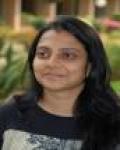Inequality and Human Development
Faculty of the Inequality and Human Development Programme spent 2020-21 building on the foundations it had laid in earlier years. The policy implications of two project reports on demand for non-farm jobs and farmers’ suicides were developed into policy briefs, and there is reason to believe the policy prescriptions for migrant workers found their way into the official response to the Covid crisis. Based on the results of the projects, faculty worked on a book on inequality, Dynamics of Difference: Inequality and India’s Rural Transformation, which is forthcoming from Routledge. The programme also received a substantial second phase of support from TCS which is being used to extend the analysis of inequality in five new directions:
- The relationship between inequality and human development
- The effects of, and response to, climate change
- The dynamics of those left behind in the process of rural transformation
- The changing role of mobility and communication technologies
- The dynamics of age and inequality.
| Narendar Pani Professor and Dean School: School of Social Sciences Programme: Inequality and Human Development Room no: S-8 +919886025957 narendar@nias.res.in |
Assistant Professor

Assistant Professor
Assistant Professor
Project Associate
Project Associate
Project Associate
Post-Doctoral Associate
Professor
Post-Doctoral Associate
Project Associate
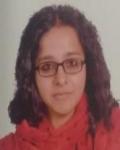
Post-Doctoral Associate
| Inequality and Development in India The research carried out in the programme thus far has strengthened its conviction that not all differences can be considered inequalities. There are differences, such as academic achievements, that are celebrated, just as there are others, including extreme variations in basic living standards, that are reviled. Consequently, the programme treats only ethically unacceptable differences as inequalities. It recognizes two routes to deciding what is ethically unacceptable: the path of rational argument and that of beliefs. Differences that are considered unethical on the basis of rational argument are termed normative inequalities, while those that are considered unethical based on beliefs that are not considered necessary to be defended rationally, are termed descriptive inequalities. This approach to inequality extends the phenomenon well beyond its economic dimensions. Correspondingly the effects of inequality on development extend far beyond its impact on growth. If, following Amartya Sen, we treat development as freedom, there is a need to assess the impact of inequality on the economic, social, political, and other freedoms of individuals, groups, and society as a whole. This project explores the relationship between inequality and a selection of freedoms. To begin with, it will examine the relationship between inequality and the freedom to lead a healthy life, the freedom to be educated, and the freedom to escape absolute deprivation. It will then go on to explore the relationship between inequality and some of the other aspects of what persons want to do or be, as well as their capabilities to do so. |
| Inequality and migration As has happened across the world at least over the last two and a half centuries, development in India has been marked by a substantial movement away from agriculture. This has typically been accompanied by movement of the population from rural to urban areas. Earlier IHDP research on the inequalities of rural transformation in India, however, brought to the fore the divergence between these two transitions: while the share of agriculture in GDP has declined dramatically, the process of urbanization has been much less rapid. This has led to four different responses in terms of migration. There is migration hesitancy in areas where jobs available from dispersed industrialization can be tapped while continuing to reside in the village; when industrialization is not available in the vicinity of the village there is permanent migration out of that rural setting; when permanent migration to an expensive city is unaffordable there is short-term migration in an effort to earn in the city and spend in the village; and when none of these options are available there is migration from one rural area to another as well as the return to the village of migrants who are unable to find a foothold in the city. The four migration related responses to a declining agriculture point to a number of inequalities that the programme seeks to address. At the very outset there is the question of who gets to migrate. It is often the case that the very poor households, typically belonging to traditionally disadvantaged social groups, lack the financial and social capital to engage in economic migration. Within the household, socio-cultural norms often restrict women’s mobility to distant labour markets. In other words, socio-economic inequalities create what can be termed as ‘left-behind populations’ that emerge from the inequality between those who get to migrate and those who don’t, and then form a part of the changing inequalities that remain in the village. Those who do migrate – either short-term or permanently – face a variety of inequalities in the processes of migration. There are the inequalities in the learning of the skills needed in urban centres; differences that are accentuated by the informality of the processes learning. The need for short-term migrants to rely on identity groups to bargain for jobs in the city can at times extend existing inequalities in the village to the processes of migration, even as the earnings of migrants can alter inequalities in the village. And the sheer volume of migrants, both permanent and temporary, as well as the informality they bring with them, alters the nature of inequality in the urban centre as well. This project will explore aspects of inequalities in three elements of migration: inequalities of those left behind, inequalities in the processes of migration including in the learning of skills, and urban inequalities generated by migration. |
| Technology and inequality The process of transformation out of agriculture has altered the relations between humans and nature in a number of ways. There has been a change in land use that has affected forests as well as cultivated land. There have also been increasing demands on other natural resources. If we take technology to be the intended changes in the relationship between humans and nature, this process generates a wide range of inequalities. There are the inequalities that emerge from the redistribution of resources brought about by technology. These inequalities may be most visible in the case of natural resources, as when technological development destroys forests. But technology can also redistribute human resources, as when labour displacing technologies reduce employment. The access to technological products are often marked by differences that are ethically unacceptable. Technology also goes beyond physical space, affecting the way people think about themselves and about others. The access to technology is often presented in a way that celebrates inequality, as in the display of an ultra-modern car. This project seeks to explore the multiple dimensions of inequality in technological change through the lens of a single set of products, those created by digital technologies. Digital technologies are a new site for modern incarnations of inequality, given how they are a realm of experience and activity not separate from the social. Uncovering socio-technological inequalities is integral to charting out the realities of socio-economic transformation in terms of novel vulnerabilities, precarities, and uncertainties that these inequalities spawn. |
| Inequalities of climate change The movement out of agriculture in India is taking place in the midst of another, and arguably larger, transformation, that of climate change. The process of moving out of agriculture can be hastened by climate change, especially when there are increased instances of drought and abnormal rainfall. On the other side of the coin, as farmers respond to the economic pressures of agrarian transformation by resorting to low-cost options like stubble burning, they add to the challenges of climate change. The causes and effects of climate change have inequalities built into them. Those who contribute the most to climate change are often not the ones who pay the greatest price. This is an inequality that has been articulated effectively on the global stage by countries like India, but there is much less recognition of these inequalities within the country. There are also inequalities in the ability to cope with climate change. The inequalities in the ability to cope could be determined by the processes of rural transformation as well as in the patterns of climate change. This project focuses not just on the unequal costs of climate change but also how local populations, already in the midst of socio-economic transformation, cope with the larger change that has been thrust upon them. The project is designed to study the local adaptations to climate change in an areas that covers diverse forms of socio-economic transformation as well as varied consequences of climate change. |
| Age and inequality As individuals cope with socio-economic transformations in the midst of climate change they also have to deal with the transformations in their bodies and minds as they become older. There may be the odd individual who sees this difference over time as somehow unfair and hence an inequality, but it is more likely that this will be recognized as a natural process that has to be accepted. What may not necessarily be as ethically acceptable would be differences from the younger population in the conditions faced by the elderly within the home and outside. These intergenerational inequalities could also vary across social groups and on the basis of gender. This project looks at ethically unacceptable differences across age groups in times of socio-economic and climate change. Among the questions it asks is whether intergenerational inequality is neutral to climate change and socio-economic transformations. |
| Narendar Pani Professor and Dean, Inequality and Human Development Programme Don’t forget political economy issues Business Line, May 22, 2019. |
|
| Narendar Pani Professor and Dean, Inequality and Human Development Programme How a disruption in Hong Kong hurts China Business Line, August 23, 2019. |
|
| Narendar Pani Professor and Dean, Inequality and Human Development Programme Cities must be geared for industrial transition Business Line, September 23, 2019. |
|
| Narendar Pani Professor and Dean, Inequality and Human Development Programme This slowdown is a fallout of liberalisation Business Line, December 22, 2019. |
|
| Narendar Pani Professor and Dean, Inequality and Human Development Programme Budget smacks of a return to protectionism Business Line, July 05, 2019. |
|
| Narendar Pani Professor and Dean, Inequality and Human Development Programme Students tend to resist political cynicism Business Line, December 28, 2019. |
|
| Narendar Pani Professor and Dean, Inequality and Human Development Programme Many parallels between Indira, Modi regimes Business Line, February 24, 2020. |
|
| Narendar Pani Professor and Dean, Inequality and Human Development Programme Transition to ‘work from home’ may pay off Business Line, March 25, 2020. |
|
| Narendar Pani Professor and Dean, Inequality and Human Development Programme The farmers’ protests prove why Mahatma Gandhi’s ideas cannot be buried Outlook, 17 February 2021. |
|
| Narendar Pani Professor and Dean, Inequality and Human Development Programme Thirty years of liberalisation: Can the market solve the fears behind farmer protests? The Wire, 28 December 2020. |
|
| Narendar Pani Professor and Dean, Inequality and Human Development Programme Thirty years of liberalisation: An idea of growth powered by migrant workers The Wire, 27 December 2020. |
|
| Narendar Pani Professor and Dean, Inequality and Human Development Programme Thirty years of liberalisation, a look back at the various pieces of the puzzle The Wire, 26 December 2020. |
|
| Narendar Pani Professor and Dean, Inequality and Human Development Programme Farm Bills and the PDS conundrum BusinessLine, 3 November 2020. |
|
| Narendar Pani Professor and Dean, Inequality and Human Development Programme Pitfalls of a ‘K-shaped’ recovery. BusinessLine, 28 September 2020. |
|
| Narendar Pani Professor and Dean, Inequality and Human Development Programme Taking on Chinese firms calls for a strategy BusinessLine, 23 August 2020. |
|
| Narendar Pani Professor and Dean, Inequality and Human Development Programme Why the cry for sporting action amidst Covid. BusinessLine, 29 July 2020. |
|
| Narendar Pani Professor and Dean, Inequality and Human Development Programme The virus of democratically elected authoritarianism. India China Institute, 19 July 2020. |
|
| Narendar Pani Professor and Dean, Inequality and Human Development Programme Self-sufficient cities, the answer to the spread of Covid BusinessLine, 29 June 2020. |
|
| Narendar Pani Professor and Dean, Inequality and Human Development Programme Raithara atmahatyage hosa Dari. (A new road to farmers’ suicides) (In Kannada) Prajavani, 13 June 2020. |
|
| Narendar Pani Professor and Dean, Inequality and Human Development Programme Will migrant workers return to the cities? BusinessLine, 27 May 2020. |
|
| Narendar Pani Professor and Dean, Inequality and Human Development Programme No place in a city that migrants can call ‘home’. BusinessLine, 23 April 2020. |
|
| Narendar Pani Professor and Dean, Inequality and Human Development Programme A Strategy for Migrant Workers NIAS Policy Brief No. NIAS/SSc/IHD/U/PB/10/2020. |
|
| Narendar Pani Professor and Dean, Inequality and Human Development Programme Farmers' suicides in India. NIAS Policy Brief No. NIAS/SSc/IHD/U/PB/16/2020. |
|
| Narendar Pani Professor and Dean, Inequality and Human Development Programme Towards an asset-based indicator of poverty. Indian Journal of Human Development 14(2): 1-10 |
|
| Narendar Pani co-authored Professor and Dean, Inequality and Human Development Programme Understanding volunteerism in civil safety and security: An international perspective. (NIAS Working Paper No. NIAS/CSS/CRE/U/WP/012/2019) |
|
| Narendar Pani Professor and Dean, Inequality and Human Development Programme Inequality and the demand for non-farm jobs. (NIAS Research Report No. NIAS/SSC/IHD/U/RR/15/2019) |
|
| Narendar Pani Professor and Dean, Inequality and Human Development Programme Inequality and farmers’ suicides in India (2019). (NIAS Research Report No. NIAS/SSC/IHD/U/RR/14/2019) |
|
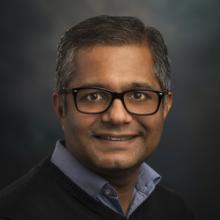
|
Chetan Choithani, Robbin Jan van Duijne, Karin Pfeffer co-authored Assistant Professor, Inequality and Human Development Programme New urban geographies of West Bengal, East India. https://www.tandfonline.com/doi/full/10.1080/17445647.2020.1819899 Journal of Maps, 16 (1 ), pp.172-183. |

|
Chetan Choithani Assistant Professor, Inequality and Human Development Programme Gendered livelihoods: Migrating men, left behind women and household food security in India. Gender, Place and Culture 27(10): 1373-1394. |
| Anant Kamath, Neethi P. co-authored Assistant Professor, Inequality and Human Development Programme Wistron plant turmoil is a consequence of privileging foreign capital over domestic workers. The Wire |
|
| Anant Kamath co-authored Assistant Professor, Inequality and Human Development Programme Social inequalities, fundamental inequities, and recurring of the digital divide: Insights from India Technology in Society 61: 101251 |
|
| Anant Kamath co-authored Assistant Professor, Inequality and Human Development Programme A qualitative, grounded theory exploration of the determinants of self-care behaviour among Indian patients with a lived experience of chronic heart failure PLoS One 16(1): e0245659. |
|
| Narendar Pani The shifting economic base of inclusiveness In: Governing the plural city edited by in Ash Amin. London and New Delhi: The British Academy and National Institute of Urban Affairs, pp 14-18. |
|
| Anant Kamath Assistant Professor, Inequality and Human Development Programme The Social Context of Technological Experiences: Three Studies from India Routledge, UK, and India |
|
| Anant Kamath Assistant Professor, Inequality and Human Development Programme Informal information-exchange networks in rural Low-tech clusters In: Inclusive Innovation: Evidence and Options in Rural India edited by Rajeswari S. Raina and Keshab Das. Springer India, pp. 101-117 |
|

|
Chetan Choithani Assistant Professor, Inequality and Human Development Programme Food security enigma: Child malnutrition high, despite economic growth https://res.us2.list-manage.com/track/click?u=4c96385cee36c21eb5f2510c4&id=811d1ede90&e=2eb0e0e188 The New Indian Express, 26 December 2021 |
| Narendar Pani Professor and Head, Inequality and Human Development Programme Thirty years of liberalisation: Can the market solve the fears behind farmer protests? https://thewire.in/agriculture/liberalisation-market-fears-farmer-protests Published in The Wire (December 28). |
|
| Narendar Pani Professor and Head, Inequality and Human Development Programme Thirty years of liberalisation: An idea of growth powered by migrant workers. https://thewire.in/labour/thirty-years-of-liberalisation-the-volatility-of-migrant-worker-based-growth Published in The Wire (December 27). |
|
| Narendar Pani Professor and Head, Inequality and Human Development Programme Thirty years after liberalisation, a look back at the various pieces of the puzzle. https://thewire.in/economy/thirty-years-after-liberalisation-a-look-back-at-the-various-pieces-of-the-puzzle Published in The Wire (December 26). |
|
| Anant Kamath, Neethi P. Assistant Professor, Inequality and Human Development Programme Wistron plant turmoil is a consequence of privileging foreign capital over domestic workers. https://thewire.in/labour/wistron-plant-make-in-india-labour-protection-foreign-business Published in The Wire (January 13). |
|
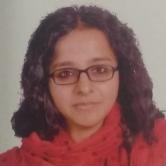
|
Swati Narayan Postdoctoral Researcher, Inequality and Human Development Programme Union Budget 2021: Slashed funds for NREGA, Poshan Abhiyan 2.0, elderly pensions reflect poorly on Centre. https://www.firstpost.com/india/union-budget-2021-slashed-funds-for-nrega-poshan-abhiyan-2-0-elderly-pensions-reflect-poorly-on-centre-9265091.html Published in Firstpost (February 02). |
| Narendar Pani Professor and Head, Inequality and Human Development Programme The farmers’ protests prove why Mahatma Gandhi’s ideas cannot be buried. https://www.outlookindia.com/website/story/opinion-the-farmers-protests-prove-why-mahatma-gandhis-ideas-cannot-be-buried/374574 Published in Outlook Magazine (February 17, online edition). |
|

|
Swati Narayan Postdoctoral Researcher, Inequality and Human Development Programme No Country for Women. https://indianexpress.com/article/opinion/columns/india-gender-gap-women-empowerment-pandemic-7291648/ Published in Indian Express (April 28). |
| Ishita Patil Project Associate, Inequality and Human Development Programme The confessions of an ethnographer: adapting to the new normal. https://ethnomarginalia.com/confessions-of-an-ethnographer/ Published in Ethnographic Marginalia (April 21). |
|
| Ishita Patil, Ayesha Pattnaik Project Associate, Inequality and Human Development Programme The issue is exploitation, not migration. https://idronline.org/the-issue-is-exploitation-not-migration/ Published in India Development Review (May 18). |
|

|
Swati Narayan Postdoctoral Researcher, Inequality and Human Development Programme With 45% of Indians excluded from the food security net, it’s time to universalise the PDS. https://scroll.in/article/997981/with-45-of-indians-excluded-from-the-food-security-net-its-time-to-univeralise-the-pds Published in Scroll (June 20). |

|
Swati Narayan Postdoctoral Researcher, Inequality and Human Development Programme Why India needs an NHS-like healthcare model. https://indianexpress.com/article/opinion/columns/post-covid-india-must-invest-in-an-nhs-like-health-model-7469094 Published in Indian Express (August 26). |
| Ishita Patil, Nitya Rao Project Associate, Inequality and Human Development Programme What happened to the fishing school?: Education, mobility and perceptions of wellbeing in a traditional fishing community in Western India. In Education, Migration and Development: Critical Perspectives in a Moving World. Bloomsbury UK |
|

|
Swati Narayan Postdoctoral Researcher, Inequality and Human Development Programme Book Review: Louise Tillin, Indian Federalism Contemporary South Asia 2021, 29(2), 305–306 |

|
Swati Narayan Postdoctoral Researcher, Inequality and Human Development Programme Book Review: S Narayan, The Dravidian Years: Politics and Welfare in Tamil Nadu, Social Change. 2021, 51(3), 441-443 |
| Narendar Pani Professor and Head, Inequality and Human Development Programme Towards an Asset-based Indicator of Poverty. https://journals.sagepub.com/doi/full/10.1177/0973703020933740 Indian Journal of Human Development, pp.1-10. |
|
| Nisar Kannangara, Nitasha Kaul Postdoctoral Researcher, Inequality and Human Development Programme The Persistence of Political Power: A Communist ‘Party Village’ in Kerala and the Paradox of Egalitarian Hierarchies. International Journal of Politics, Culture, and Society. Online First. |
|

|
Chetan Choithani, Robbin Jan van Duijne, Jan Nijman Assistant Professor, Inequality and Human Development Programme Changing livelihoods at India’s rural-urban transition. https://www.sciencedirect.com/science/article/pii/S0305750X21002321 World Development, 146(105617). |
| Anant Kamath, Neethi P. Assistant Professor, Inequality and Human Development Programme Urban Transition and Street-Based Sex Work in Bangalore Cambridge University Press. |
|
| Narendar Pani co-edited Professor and Head, Inequality and Human Development Programme Dynamics of Difference: Inequality and Transformation in Rural India. Routledge. |
|
| |
Debosree Banerjee Assistant Professor, Inequality and Human Development Programme Inequality and Farmers Suicides in India http://ec2-3-108-111-222.ap-south-1.compute.amazonaws.com/niastestweb/sites/default/files/2022-03/WP5-2016.pdf Volume WP5-2016, Bengaluru (2016) |
| |
Anamika Ajay Stepping into another Woman's Shoes: Substitute Women in Families of Female Emigrant Workers Volume WP7-2017, Bengaluru (2017) |
| |
Sumedha Bajar Locational Mismatch between the Demand for Jobs and the Demand for Skills in India Volume WP6-2017, Bengaluru (2017) |
| |
Narendar Pani Professor and Head, Inequality and Human Development Programme Normative and Descriptive Inequalities NIAS Working Paper: WP8 – 2017 |
| |
Jiyaul Haque Land, Caste and Power in Circular Migration NIAS Working Paper: WP9 – 2018 |
| |
Anant Kamath Assistant Professor, Inequality and Human Development Programme A Technological Enquiry into Inequality: A Conceptual Review NIAS/SSc/IHD/U/WP/11/2021 |
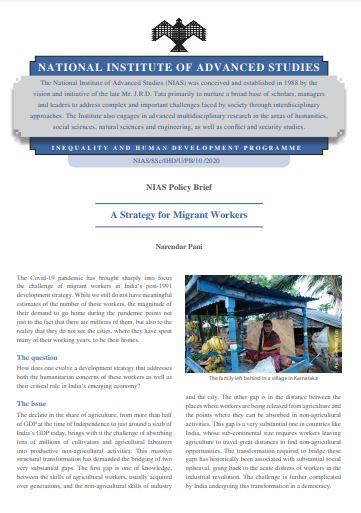
|
Narendar Pani Professor and Head, Inequality and Human Development Programme A Strategy for Migrant Workers (NIAS/SSc/IHD/U/PB/10 /2020), NIAS: Bengaluru. |

|
Swati Narayan Post-Doctoral Associate, Inequality and Human Development Programme Time for Universal Public Distribution System: Food Mountains and Pandemic Hunger in India https://res.us2.list-manage.com/track/click?u=4c96385cee36c21eb5f2510c4&id=a836a0991e&e=2eb0e0e188 Indian Journal of Human Development, 13 October 2021 Nearly 45% of India’s population without National Food Security Act (NFSA) ration cards have been largely excluded from the central government's food rations during the pandemic lockdowns, despite historic levels of food stocks in government granaries. Therefore, the time is opportune for universal expansion of the public distribution system. |
Lectures and Seminars
Swati Narayan gave a talk on ‘Denial of eggs to children in school mid-day meals' for India Counter Dialogue on the UN Food Systems Summit on September 04, 2021
Anant Kamath spoke at the ISID-CII Roundtable on Harnessing Industry 4.0 for India’s Development, organised by the Institute for Studies in Industrial Development (ISID) on 25 August 2021, about technology and inequality in the context of inclusiveness of marginalised groups.
Anant Kamath, and co-researcher Neethi P., presented a paper at the RC21 Conference Sensing the City: People, Places, Power organised by the International Sociological Association (ISA) and University of Antwerp on 16 July 2021, about urban transition and street-based sex work in Bangalore city.
Anant Kamath presented a paper at the IPPN Annual Conference Technology and Policy, organised by the Indian Public Policy Network (IPPN) and the Indian School of Business (ISB) on 27 March 2021, about expanding the concept of the digital divide.
Swati Narayan gave a talk on ‘Journey of the National Food Security Act’, organised by Centre for Policy Research, Indian Institute of Technology (IIT) Bombay on March 26, 2021.
Swati Narayan gave a talk on ‘Post-budget Food Security and Nutrition’ for Janta Parliament on March 04, 2021.
Anant Kamath gave a talk on technology and society at the NIAS-DST Training Programme on ‘Science and Technology: Global Developments and Perspectives,’ on 15 February 2021.
Anant Kamath, and co-researcher Neethi P., presented a paper at Urban Arc 2021 Urban Imaginaries, organised by the Indian Institute for Human Settlements (IIHS) Bangalore on 14 January 2021, about urban transition and street-based sex work in Bangalore city.
Narendar Pani gave an online seminar at the New School at New York on November 10, 2020. In his talk titled ‘Volatility and power in India’a distance dualism’, he discussed dynamics of circular labour migration. The full talk is available here.
Chetan Choithani delivered a talk on ‘Migration narrative in India’ in New York University’s Steinhardt School on November 04, 2020.


